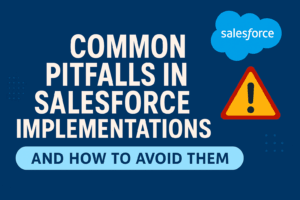BLOG
The Future of SEO – Are Keywords Dead?
For many years, there has been such a strong emphasis on the importance of keywords in SEO that many people struggle to believe that they may not be so important anymore. Before considering the current role of keywords in online content and what this means for the future, take a couple minutes to review the changes that we’ve experienced with Google in relation to keywords over the past few years.
Panda & Penguin
Google introduced the Panda and Penguin updates in 2011 and 2012 respectively. Panda squashed weak content and content farms while Penguin attacked keyword stuffing, link schemes, and other shady SEO tactics. There is no question that these two updates played a major role in SEO that extends far beyond keyword use. Looking back on keyword optimisation now, it’s clear that Panda and Penguin were just the beginning.
In-depth articles
Google introduced a new type of search result, the in-depth article, in August 2013. In-depth articles were intended to give high quality, long-form content a leg up in search engine inquiries. Google recognises in-depth articles as having more than 1,000 words and being based around evergreen topics that are relevant year after year.

Hummingbird
Google also unrolled their Hummingbird update in August 2013, which affected 90 percent of all Google searches. This update made it clear that providing context is more important than simply choosing the right words. It emphasised using backlinks from trustworthy sites, using natural anchor text links, making content practical yet engaging, and establishing a solid social media presence across multiple platforms. Google doesn’t simply want search results anymore; it wants answers. If you can’t provide answers your customers’ questions and problems, your SEO is going to suffer, regardless of the keywords that you choose.
Keyword search encryption
Finally, in September 2013, Google made a drastic move, announcing that they would hide all keyword data from Google Analytics. When Google first launched keyword search encryption, they estimated that the amount of not provided keyword visits would be a single digit percentage of total Google searches. However, over time, the conversion expanded to include all signed-in users and eventually default Firefox searching.
Initially Google made the pitch that they were implementing keyword search encryption to increase security for searches. However, as keyword data is still accessible for paid searches, it seemed to be more of a strategy to get people to use Google AdWords. While you can debate the intention of this move all day, it’s clear that Google sent a strong message that there should be less emphasis on keywords than ever before.

So what is the future of keywords in SEO?
With keyword search encryption in place, Google is attempting to understand the intent behind the keywords that people use on search engines instead of the keywords themselves. This process is meant to provide better matches for high quality, relevant content. Consequently, as a company, instead of focusing on traditional keyword optimisation, you must also focus on targeted customer intent to mirror these searches.
The days of quick SEO fixes and loopholes that will slide under Google’s radar are long gone, placing more importance on relevant, high quality content than ever. As you create content and optimise your branding and web presence, think about the more complex aspects of Google’s algorithms, such as intent research, aligned content creation, and queries to actions.
While keyword data dried up seemingly overnight, there are still key analytics to track, most notably landing page based metrics or more simply put, content analytics. Think about tracking number of landing page reviews, raw number of submissions, number of new leads from the submissions, ratio of views to form submissions or conversion rate, and number of customers.
Every time Google implements a significant change for their search engine, people always pose the question, “Is SEO dead?” While given strategies will come and go, the practice of SEO is never going to go away altogether. As a marketer, you must keep up with the ever changing practices and be willing to change and evolve your own tactics as needed.
As search engines and SEO practices aren’t going anywhere any time soon, keywords are never going to completely die either. We’re still going to rely on written language to communicate and find content online. If you have in-depth knowledge about your industry, you shouldn’t have to think too hard about using long-tail keywords naturally. If you still struggle to get away from the notion of keywords, focus more on what these keywords mean to your audience than how you’re using them in a given piece of content.











